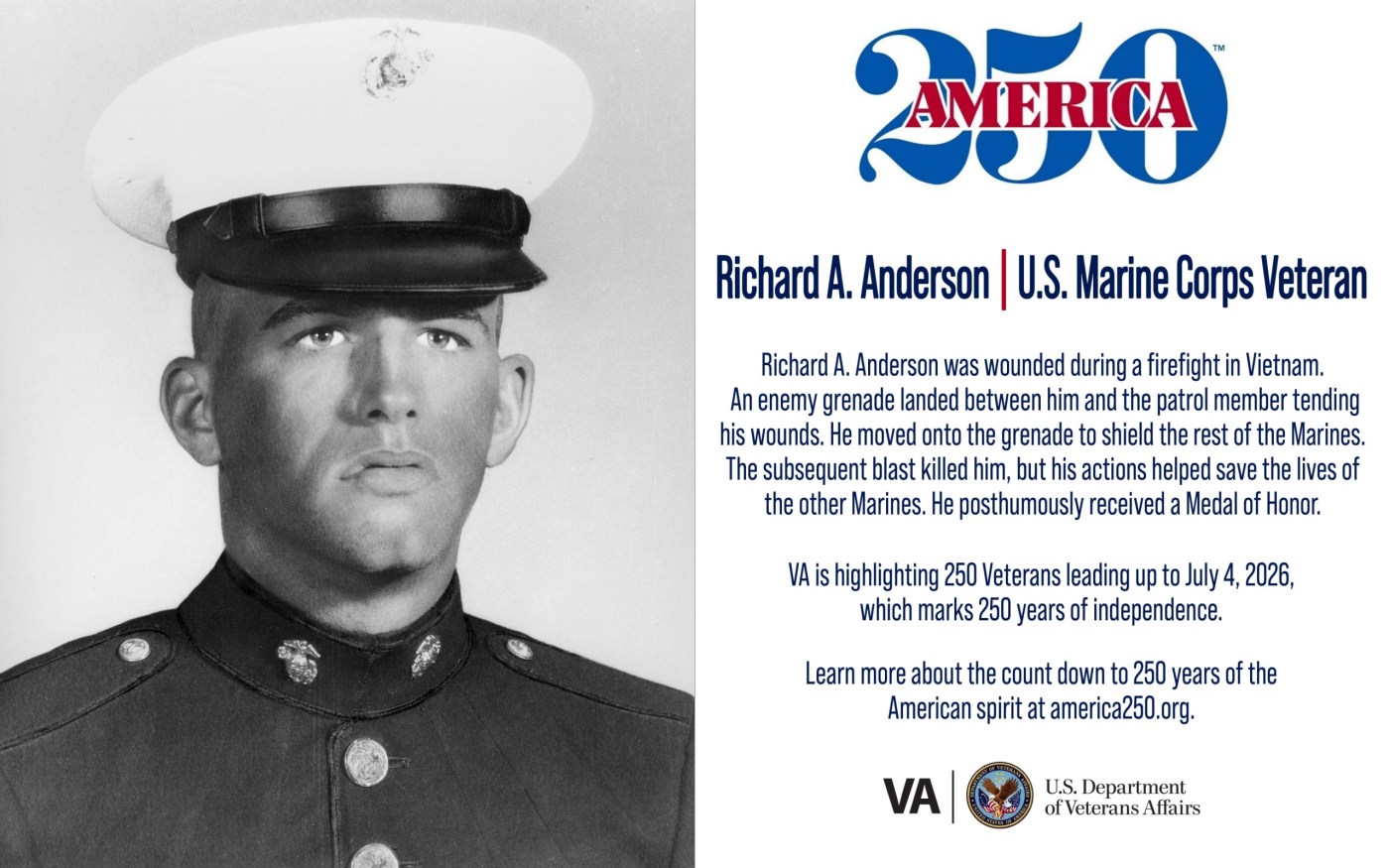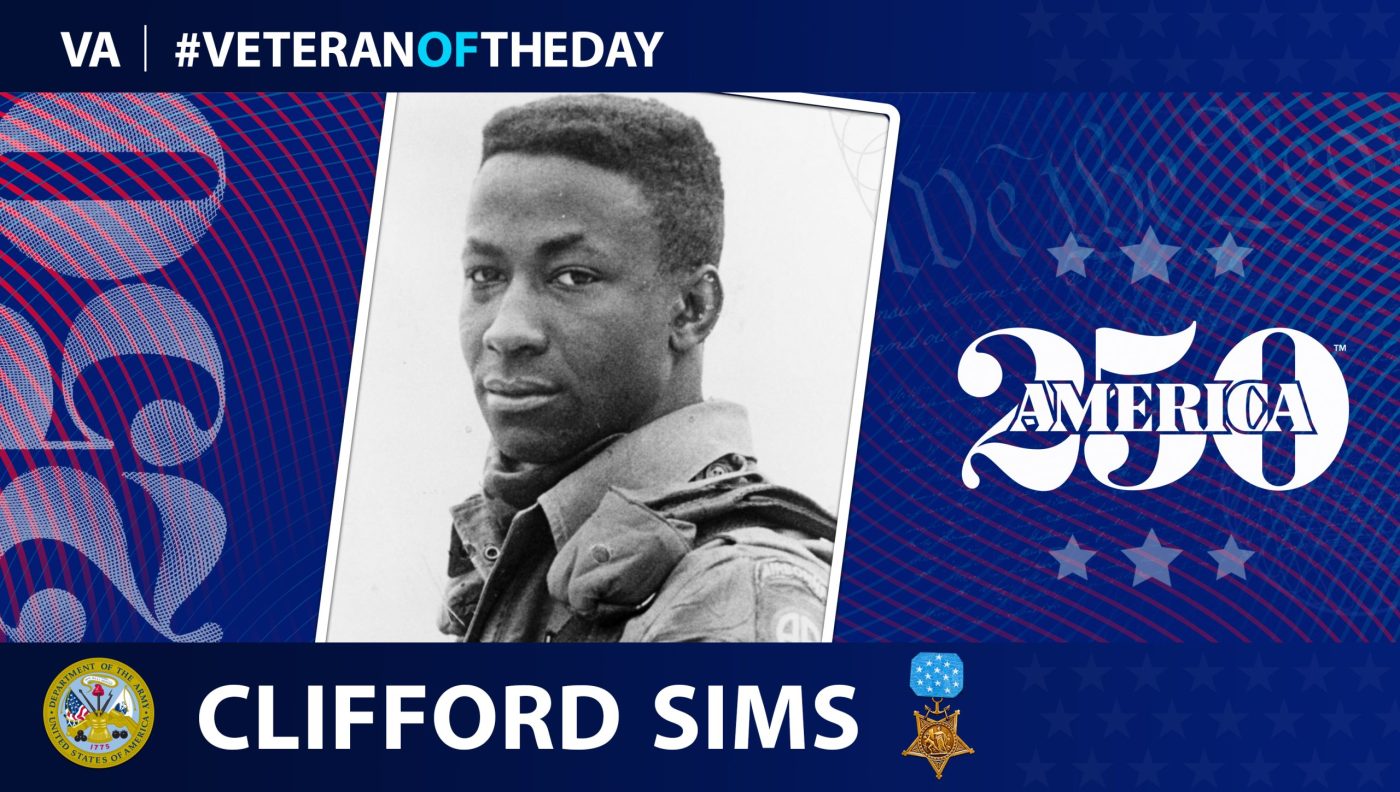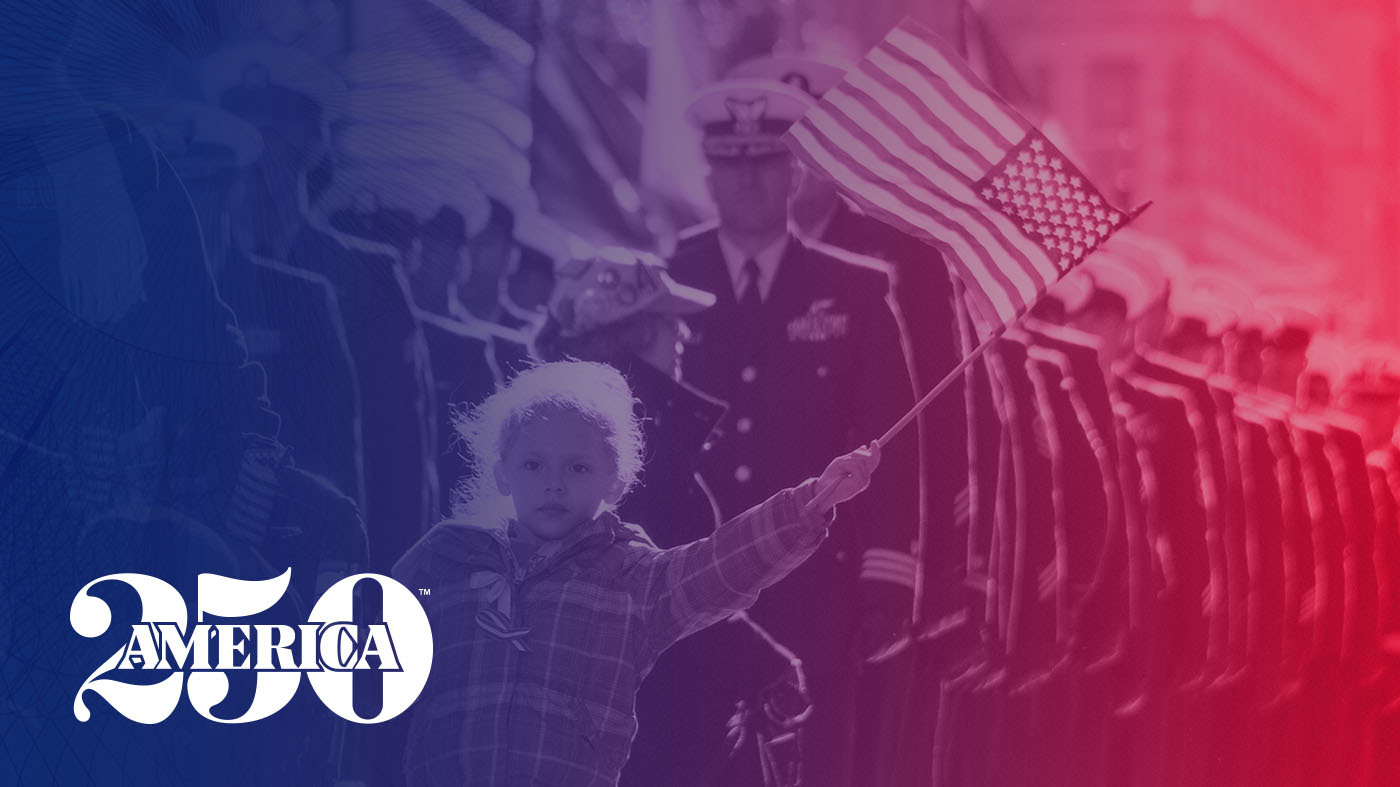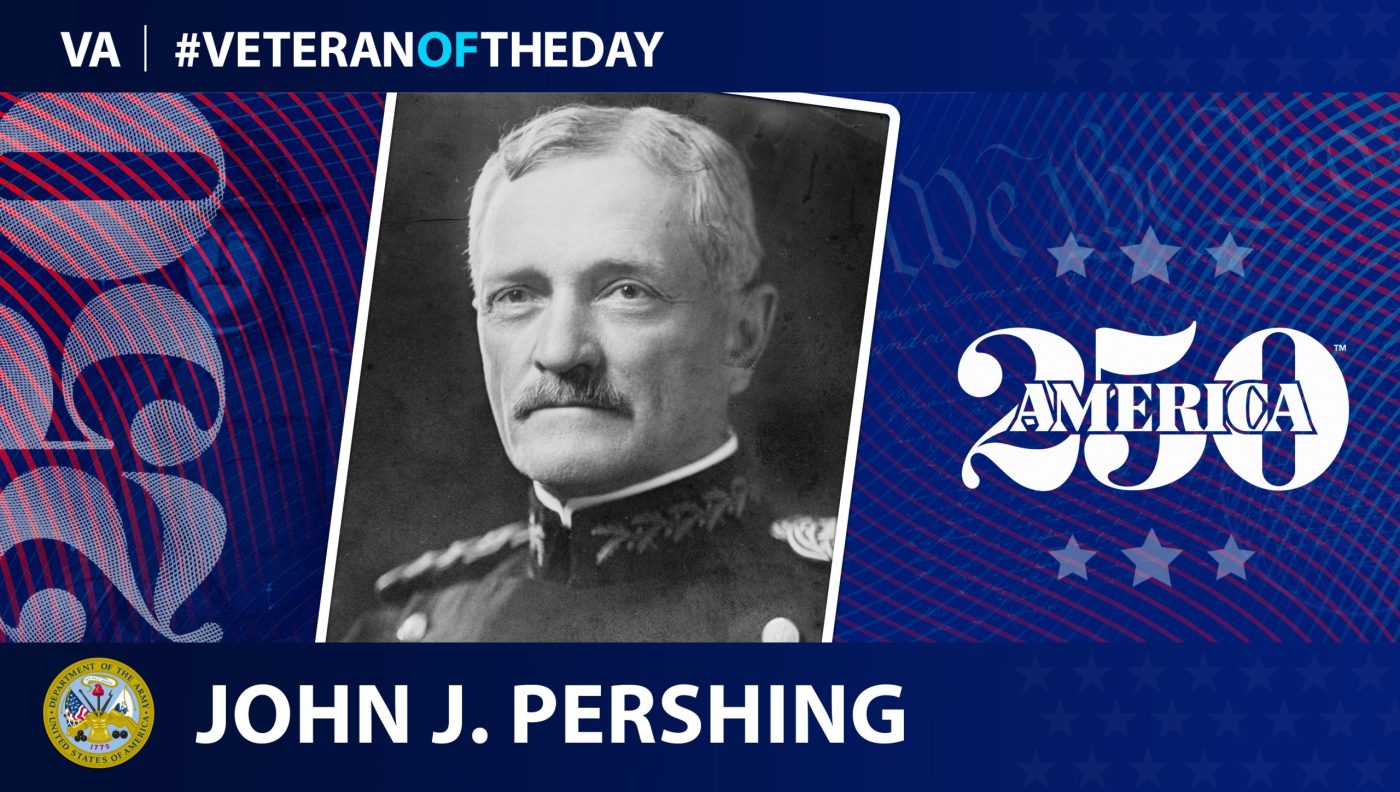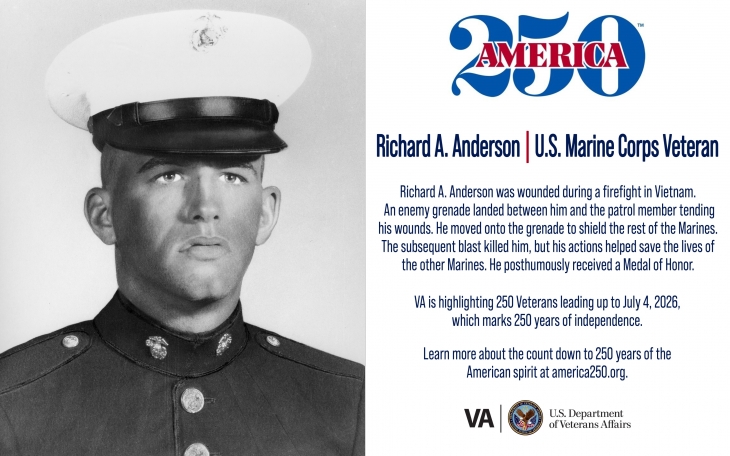
This week’s America250 salute is Marine Corps Veteran Richard A. Anderson.
Richard A. Anderson was born in April 1948 in Washington, D.C., and grew up in Houston, Texas, after his family relocated there. He graduated from M.B. Smiley High School in 1966 and attended San Jacinto Junior College in Pasadena, Texas. While he was in college, the U.S. had been in Vietnam for several years. Wanting to help in the war effort, Anderson enlisted in the Marine Corps after a year and a half of college.
By October 1968, now a private first class, Anderson completed his training in Southern California and was ready to deploy to Vietnam. He first served with Sub Unit #1, Provisional Service Battalion, 9th Marine Amphibious Brigade, but went to the 3rd Marine Division after arriving in Vietnam in November. Anderson began his service in Vietnam working as a rifleman and eventually became the assistant team leader for Company E, 3rd Reconnaissance Battalion, 3rd Marine Division. Several months after assuming the latter position, Anderson promoted to lance corporal.
On Aug. 24, 1969, Anderson was a part of a reconnaissance patrol working near Vandegrift Combat Base in the Quang Tri province when a contingent of hidden enemy forces attacked them. Faced with heavy enemy fire, Anderson received wounds in both legs early in the fight but continued firing. An enemy soldier close to the patrol’s location shot him again. Despite sustaining these injuries, Anderson refused to give up during the fight and continued to fire at the enemy, even when another patrol member was tending to his wounds. While Anderson continued his attack, an enemy grenade landed between him and the patrol member tending his wounds. Immediately, he moved on to the grenade to shield the rest of the Marines from the blast. While the subsequent blast killed Anderson, his actions helped save the lives of the other Marines in the fight.
Two years after Anderson’s death, he posthumously received a Medal of Honor on Sept. 15, 1971, during a White House ceremony where his family accepted the Medal of Honor in his stead. Anderson also received a Purple Heart during his service. His Medal of Honor citation reads, “L/Cpl. Anderson was instrumental in saving several Marines from serious injury or possible death. His actions were in keeping with the highest traditions of the Marine Corps and of the U.S. Naval Service.”
The Richard A. Anderson Texas State Veterans Home located in Houston, Texas, was named in his honor. Anderson is buried in Forest Park Cemetery in Lawndale, Texas.
We honor his service.
America250
VA is highlighting 250 Veterans leading up to July 4, 2026, which marks 250 years of independence. Learn more about the count down to 250 years of the American spirit at https://america250.org/.
Contributors
Writer: Raymond Lin
Editors: Nolan Lounsbery and Annabelle Colton
Fact Checker: Timothy Georgetti
Graphic Designer: Kiki Kelley
Topics in this story
More Stories
Today's America250 and #VeteranOfTheDay honors Army Veteran Clifford Sims, who was posthumously the Medal of Honor.
America250 wants you to share your story. We want to hear the story of your service and your reflections on our nation’s past, present and future.
Today's America250 and #VeteranOfTheDay is Army Veteran John J. Pershing, who became General of the Armies of the United States, the highest rank possible for any member of the United States Armed Forces.

